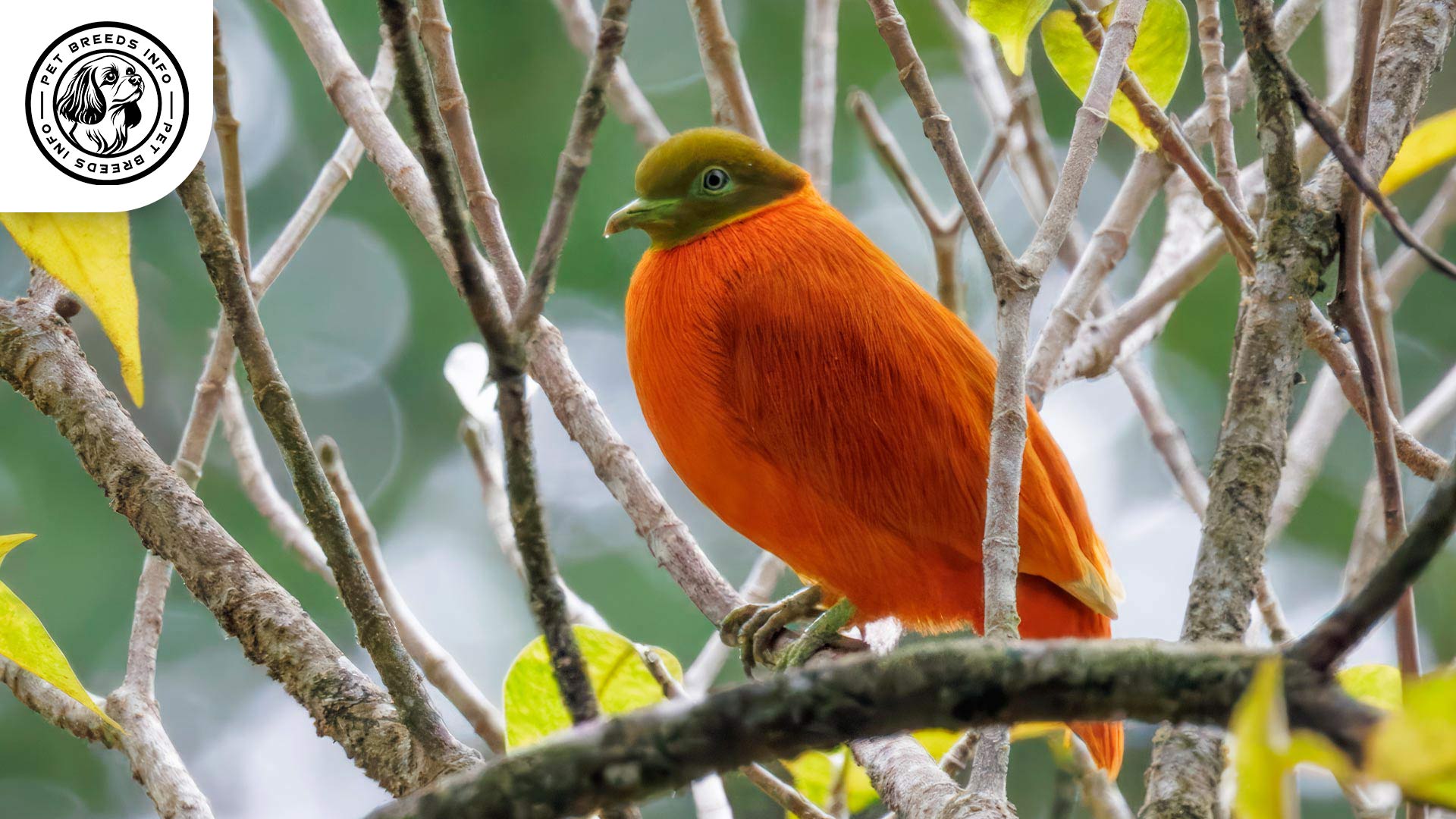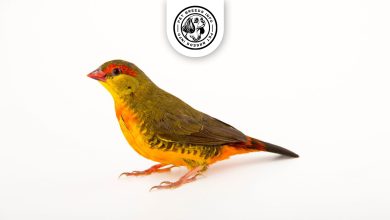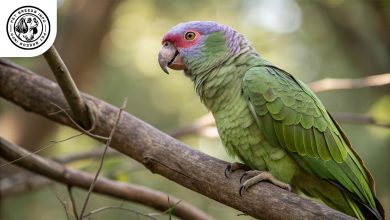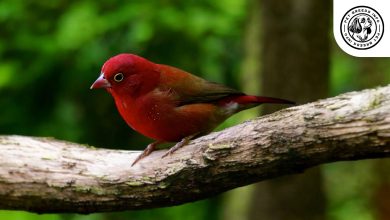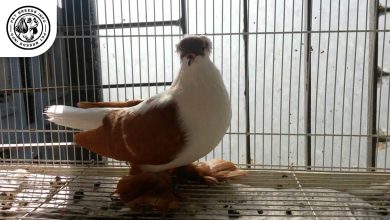Orange Dove Bird: Personality, Lifespan, Food & Care
General Introduction of the Breed
The Orange Dove (Ptilinopus victor), also known as the Flame Dove, is a strikingly vibrant bird species native to the islands of Fiji. This unique dove is a member of the Columbidae family and is renowned for its bright and distinctive plumage.
Endemic to Fiji, the Orange Dove mainly inhabits tropical rainforests, where it thrives in dense foliage for feeding and nesting. This species has a significant cultural and ecological role in its native region, contributing to seed dispersal within its habitat.
Table of Contents
| Common Name | Orange Dove, Flame Dove |
| Scientific Name | Ptilinopus victor |
| Origin | Fiji |
| Size | Males approx. 20 cm (7.9 inches), females slightly smaller |
| Lifespan | Wild: 10-15 years; Captivity: potentially longer |
| Talking Ability | Not applicable (wild, non-domesticated) |
| Colors | Male: bright orange; Female: green |
| Noise Level | Not explicitly mentioned, but described as generally shy and elusive |
| Social Behavior | Solitary or in small pairs |
Physical Characteristics
The Orange Dove is a small to medium-sized bird, with males measuring approximately 20 cm (7.9 inches) in length. Females tend to be slightly smaller.
The most notable feature is the male’s bright orange plumage, which contrasts beautifully with its greenish-yellow beak. Females, on the other hand, display a more muted appearance with green feathers that provide excellent camouflage.
They have round, dark eyes that give them a gentle expression. Their tails are relatively short and rounded, while their feet are small yet strong, allowing them to perch securely on branches.
Read More: Orange-bellied Parrot
Personality and Temperament
The Orange Dove is a generally shy and elusive species, preferring to stay hidden within the thick vegetation of its rainforest habitat. It is not domesticated and does not exhibit the same level of interaction as traditional pet birds.
These birds are peaceful by nature and tend to be solitary or live in small pairs. They have a calm demeanor and are rarely seen engaging in aggressive behavior.
Due to their natural instincts and non-domesticated behavior, they are better suited for observation rather than handling.
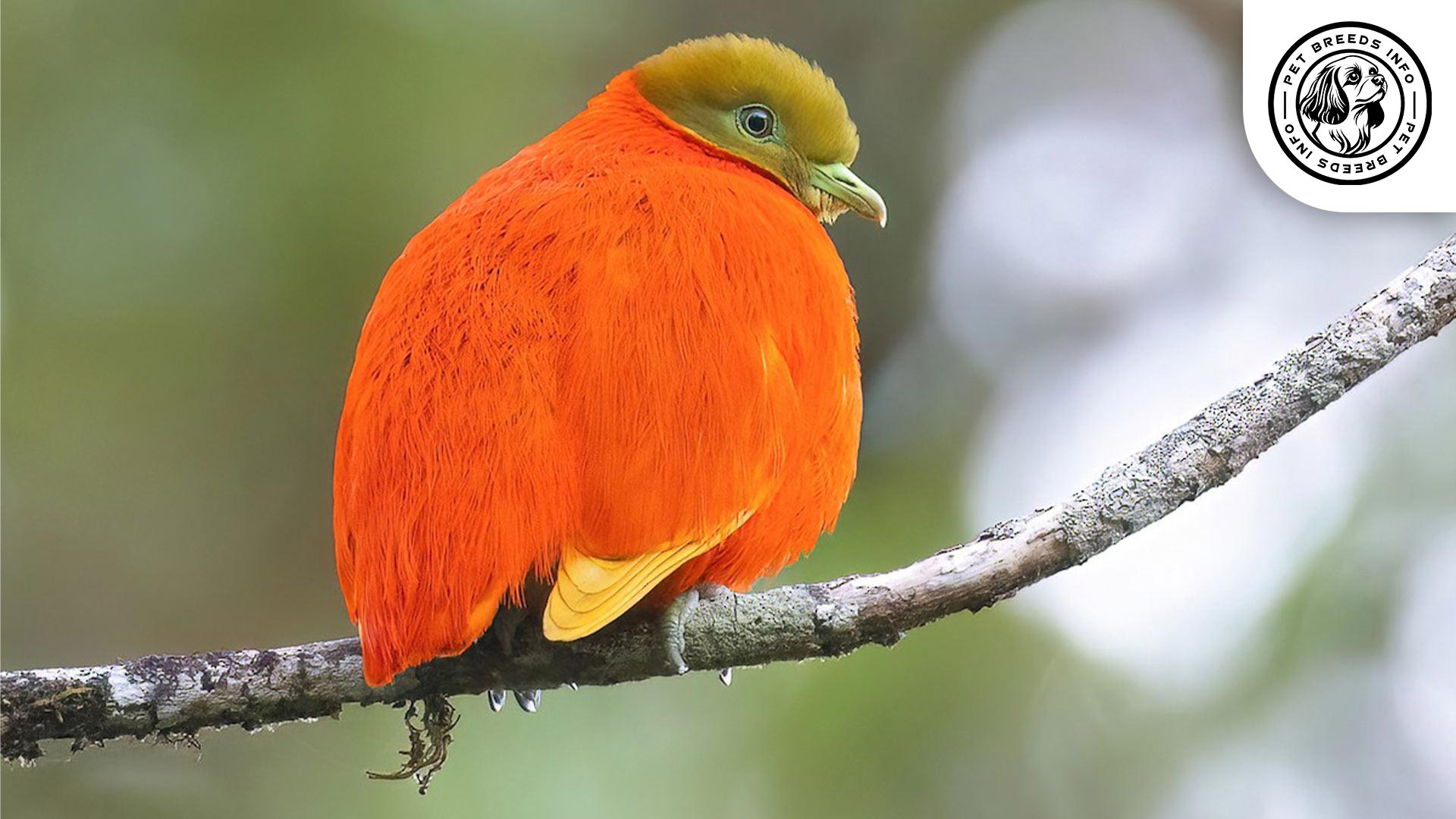
Care and Maintenance Requirements
As a wild species, the Orange Dove is not commonly kept as a pet. However, for those in conservation efforts or aviaries, maintaining a habitat that mimics the bird’s natural rainforest environment is crucial.
A spacious aviary with plenty of vegetation, climbing branches, and shaded areas is ideal. They require a calm and secure space, away from excessive noise or disturbances.
Regular cleaning of their enclosure, access to fresh water, and providing safe perches will help maintain their overall well-being.
Diet and Nutrition
The Orange Dove primarily feeds on fruits, berries, and small seeds found in its natural habitat. A diet rich in fresh tropical fruits like papaya, banana, and figs is essential.
They should be provided with a clean source of water at all times.
Avoid feeding them processed or unnatural foods, as these can be harmful to their health.
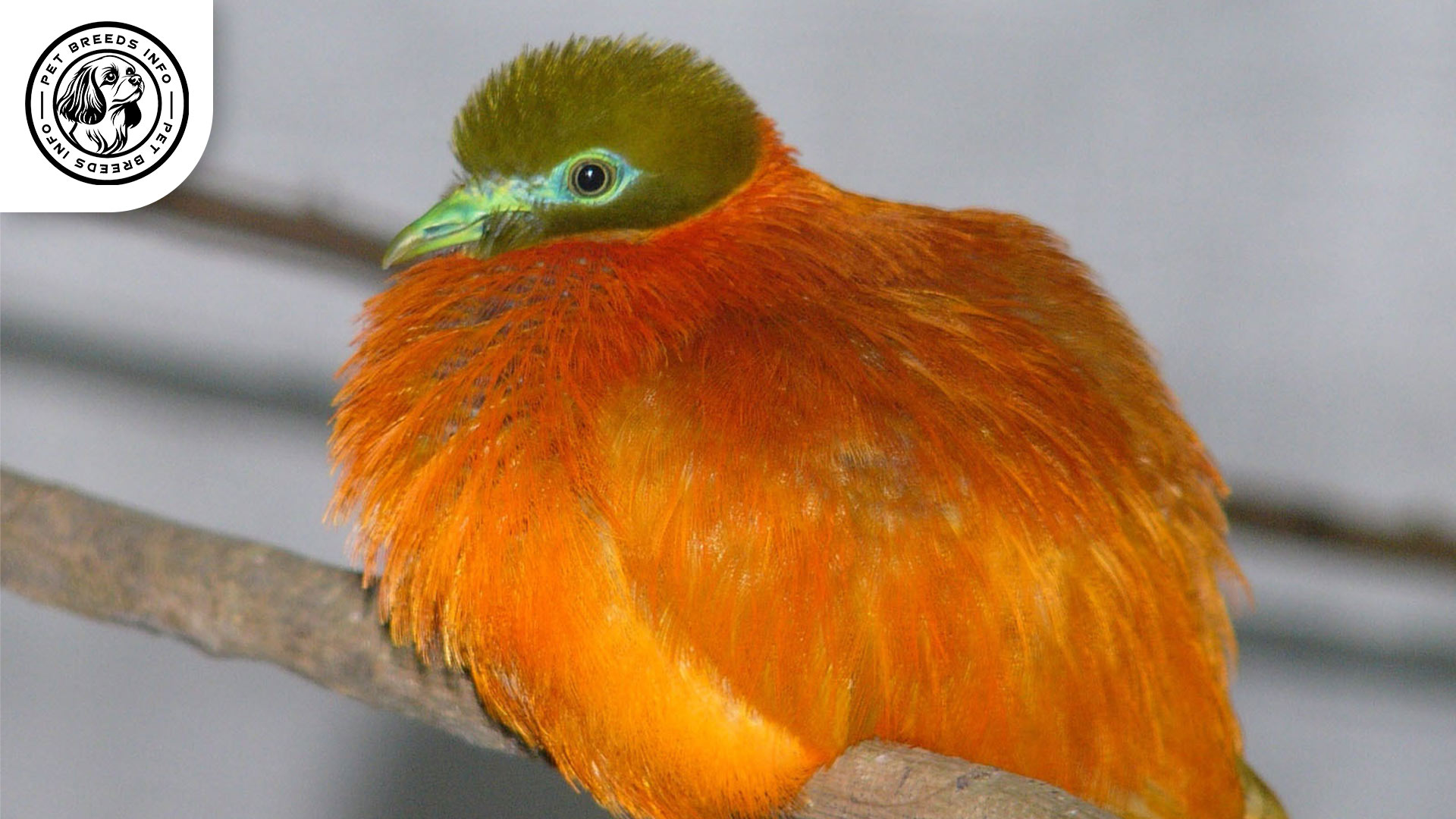
Health and Common Medical Issues
The Orange Dove is generally a hardy species when living in its natural environment. However, in captivity, they may be prone to respiratory infections or nutritional deficiencies if not provided with proper care.
Regular health check-ups with an avian veterinarian can help detect any early signs of illness.
The average lifespan of the Orange Dove in the wild is around 10-15 years, whereas well-cared-for birds in protected environments may live longer.
Read More: Yellow-naped Amazon
Training and Behavior Management
Unlike domesticated birds, the Orange Dove is not typically trained. They are naturally reserved and do not have a strong inclination toward human interaction.
If kept in an aviary or conservation setting, patience and a quiet approach are necessary to build trust without inducing stress.
Interaction with Other Animals and Humans
The Orange Dove is a peaceful species that coexists well with other non-aggressive birds in an aviary setting. However, they prefer maintaining their space and may not actively engage with other species.
They are not suited as companion pets but can be appreciated for their beauty and ecological significance.
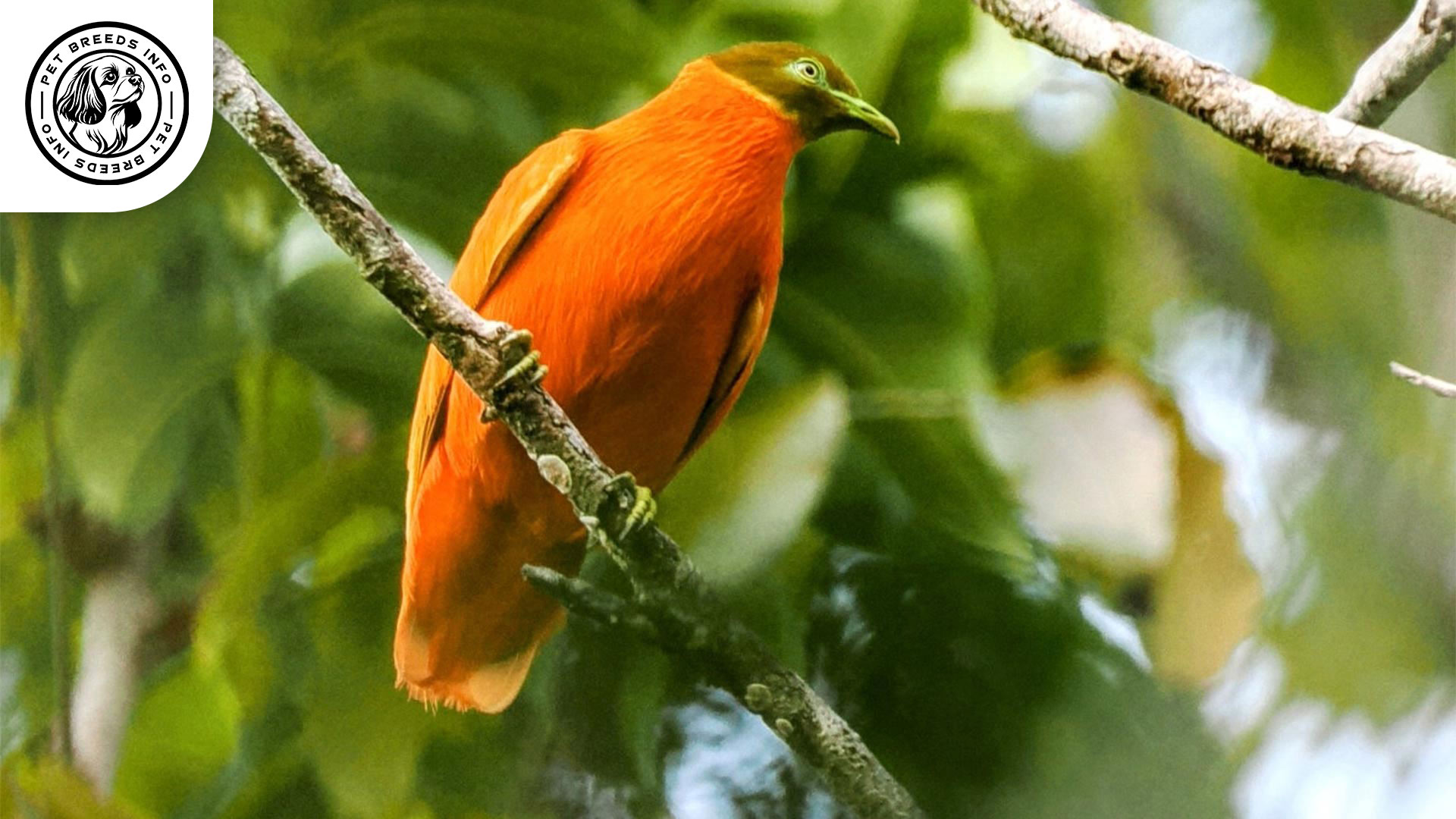
Price and Availability
Due to their status as a wild species, Orange Doves are not commonly available for purchase as pets. They are primarily found in their native habitats and specialized conservation aviaries.
International trade or acquisition of these birds is highly regulated due to conservation laws.
Conclusion and Final Thoughts
The Orange Dove is a breathtaking species that thrives in its natural rainforest environment. It is not suitable as a pet but remains a valuable part of its ecosystem, helping in seed dispersal and forest regeneration.
For bird enthusiasts, observing these doves in their natural habitat or protected aviaries provides an incredible experience.
Conservation efforts are crucial in preserving their population, ensuring that future generations can continue to admire this vibrant and elusive bird.
Read More: Red-faced Pytilia
FAQ
Where do Orange Doves come from?
They are native to the islands of Fiji.
What do male Orange Doves look like?
Males have bright orange plumage.
Are Orange Doves kept as pets?
Not commonly, as they are a wild species.
What do Orange Doves eat?
They primarily feed on fruits, berries, and small seeds.
How long do Orange Doves live?
In the wild, their lifespan is around 10-15 years.
